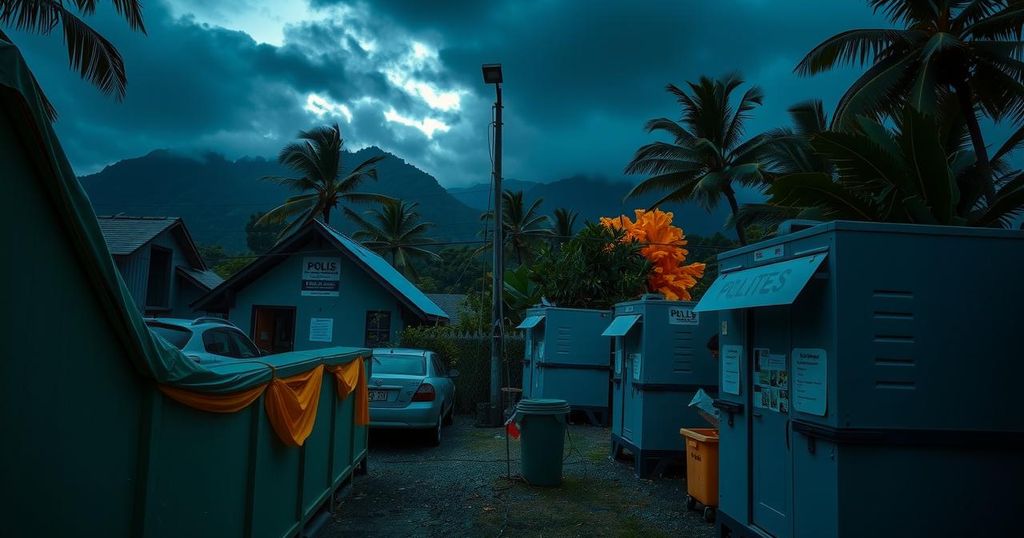Mauritius Elections: Democracy at a Crossroads Amid Wire-Tapping Scandal

Mauritius is poised for elections amid a significant wire-tapping scandal that has led to concerns over the erosion of democracy. Prime Minister Pravind Jugnauth’s re-election bid faces scrutiny following the leak of private communications and a controversial response to social media censorship. Voter sentiment is increasingly influenced by issues of corruption, representing a critical turning point for the nation as it grapples with identity and representation.
Mauritius is preparing for its general elections on Sunday, amid turmoil stemming from a wire-tapping controversy that threatens to undermine the country’s democratic integrity. Celebrating a recent legal victory regarding the Chagos Islands, the political atmosphere in Mauritius has been marred by the unauthorized release of private communications involving prominent figures, which has raised serious concerns about civil liberties. Prime Minister Pravind Jugnauth’s re-election efforts are complicated by allegations of government misconduct and a crackdown on social media, which sparked public backlash and was promptly lifted following pressure from opposition parties and media representatives. The nation, known for its relative political stability and economic success since gaining independence from Britain in 1968, is witnessing increasing fears regarding the deterioration of democratic practices. Over one million registered voters will participate in this important election, yet there are deep apprehensions regarding institutional integrity as corruption and power consolidation have been prevalent in recent years. Democracy researcher Roukaya Kasenally criticized the current government’s handling of checks and balances, lamenting the corruption that has escalated during the COVID-19 pandemic and the marginalization of certain populations within Mauritius. As the election approaches, both the ruling Militant Socialist Movement (MSM) and the main opposition Labour Party, led by Navin Ramgoolam, face challenges from a rising coalition, the Linion Reform alliance, which advocates for reformative policies. The recent controversy, in conjunction with historical grievances concerning discrimination against the Creole population, heightens the stakes as the country navigates its electoral landscape. Meanwhile, a significant diplomatic shift regarding the Chagos Islands may further influence political sentiment and voter behavior during this pivotal time. In light of the current scandals and political tension, the importance of Mauritius maintaining strong democratic norms is paramount. The upcoming elections represent not only a test of the ruling party’s resilience but also a reflection of the public’s aspirations for transparency, representation, and accountable governance in the future.
The upcoming elections in Mauritius are underscored by the recent wire-tapping scandal that has captivated public attention and raised concerns regarding the state of democracy in the nation. Despite being lauded as a model of political stability and economic progress in Africa, Mauritius faces growing criticism regarding governance and corruption, particularly following the controversy involving leaked phone calls of various politicians and influential figures. The political landscape is also complicated by the historical context of the Chagos Islands, which recently transitioned from British oversight back to Mauritian sovereignty, presenting both opportunities and challenges for the country moving forward.
In conclusion, the looming elections in Mauritius encapsulate the complexities between a robust democratic framework and emerging challenges stemming from corruption and civil rights violations. As the nation prepares to cast its votes, it faces critical questions about its future direction, governance transparency, and the need for continued representation and efficacy within its political institutions. The wire-tapping scandal serves as a sobering reminder of the fragility of democratic systems and the necessity for vigilance among society and its leaders alike.
Original Source: www.seychellesnewsagency.com






